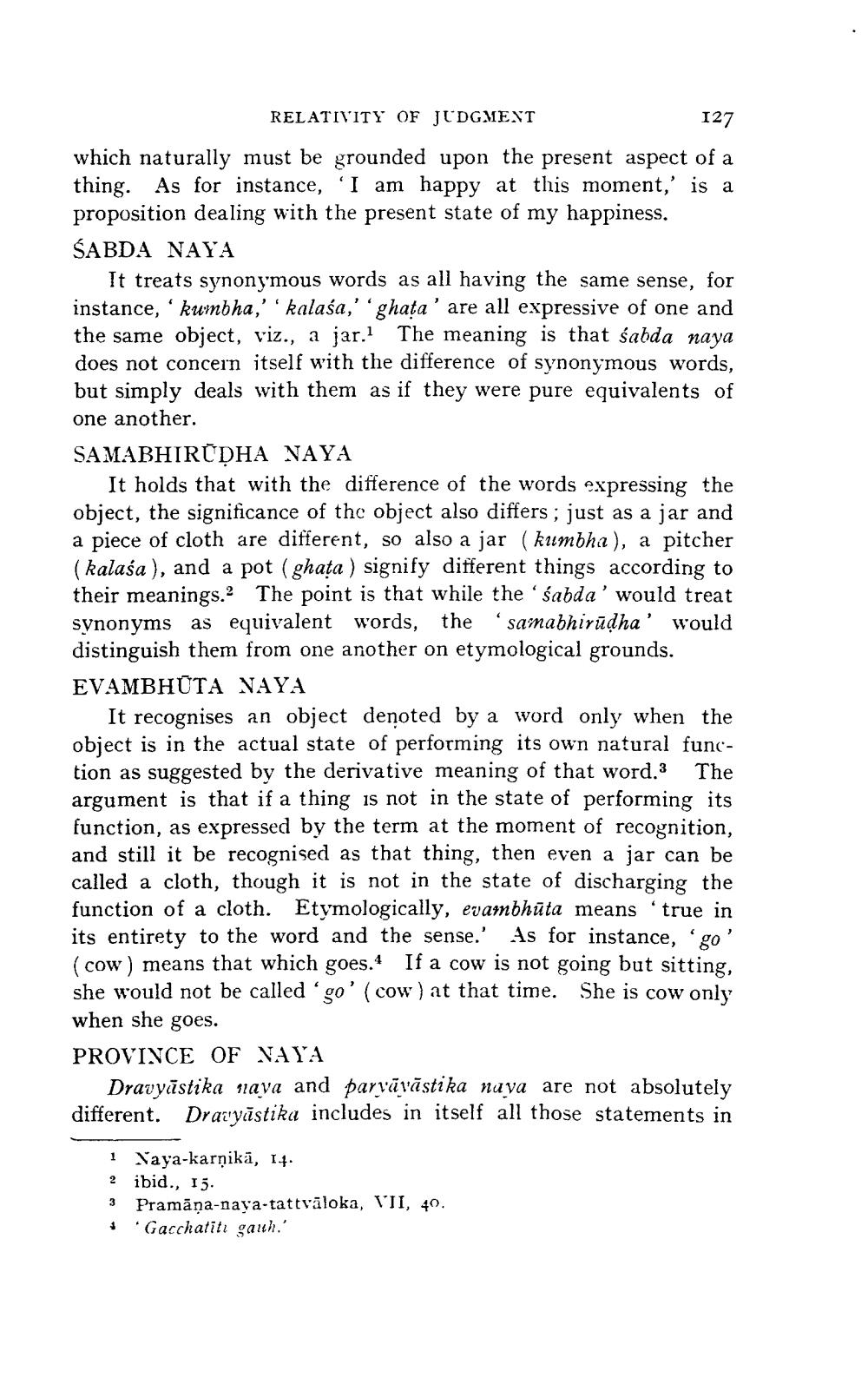________________
127
RELATIVITY OF JUDGMENT
which naturally must be grounded upon the present aspect of a thing. As for instance, I am happy at this moment,' is a proposition dealing with the present state of my happiness. SABDA NAYA
,
It treats synonymous words as all having the same sense, for instance, kumbha,'' kalaśa,' 'ghata' are all expressive of one and the same object, viz., a jar. The meaning is that sabda naya does not concern itself with the difference of synonymous words, but simply deals with them as if they were pure equivalents of one another.
SAMABHIRUDHA NAYA
It holds that with the difference of the words expressing the object, the significance of the object also differs; just as a jar and a piece of cloth are different, so also a jar (kumbha), a pitcher (kalasa), and a pot (ghața) signify different things according to their meanings.2 The point is that while the 'sabda' would treat synonyms as equivalent words, the 'samabhiruḍha' would distinguish them from one another on etymological grounds. EVAMBHUTA NAYA
It recognises an object denoted by a word only when the object is in the actual state of performing its own natural function as suggested by the derivative meaning of that word.3 The argument is that if a thing is not in the state of performing its function, as expressed by the term at the moment of recognition, and still it be recognised as that thing, then even a jar can be called a cloth, though it is not in the state of discharging the function of a cloth. Etymologically, evambhūta means 'true in its entirety to the word and the sense.' As for instance, 'go' (cow) means that which goes. If a cow is not going but sitting, she would not be called 'go' (cow) at that time. She is cow only when she goes.
PROVINCE OF NAYA
Dravyāstika naya and paryāyāstika naya are not absolutely different. Dravyastika includes in itself all those statements in
1 Naya-karṇikā, 14.
2 ibid., 15.
Pramāṇa-naya-tattväloka, VII, 40.
4 Gacchatiti gauh.'
3




